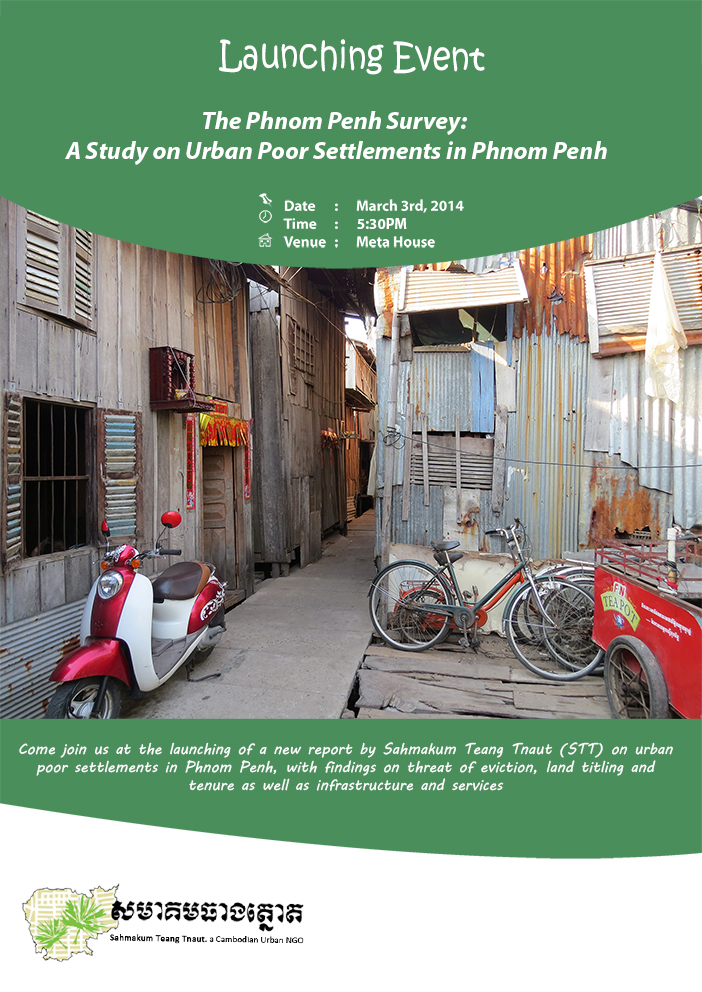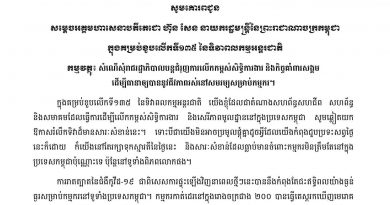
 The latest research paper Low-income rental housing in urban areas which was jointly published by the Cambodian Alliance of Trade Unions (CATU), Center for Alliance of Labor and Human Rights (CENTRAL), Federation Union of Free and Independent (FUFI), and Sahmakum Teang Tnaut (STT) found that many factory workers do not yet have access to adequate and affordable rental housing. The report also found that landlords often violate the law by increasing rental payments following factory workers receiving pay increases.
The latest research paper Low-income rental housing in urban areas which was jointly published by the Cambodian Alliance of Trade Unions (CATU), Center for Alliance of Labor and Human Rights (CENTRAL), Federation Union of Free and Independent (FUFI), and Sahmakum Teang Tnaut (STT) found that many factory workers do not yet have access to adequate and affordable rental housing. The report also found that landlords often violate the law by increasing rental payments following factory workers receiving pay increases.
CATU’s President Yang Sophorn provided the following:
“This research shows that factory workers, who are likely to be in rental housing because they often immigrate for work, are not receiving houses that are safe. Many respondents have been the victims of crime in their own rooms or on the streets nearby, whereas others live in small rooms with multiple people and no fire escapes or functioning locks.”
Nearly a quarter of all factory workers experienced a crime near their rental houses, with one in ten experiencing crime inside their homes. Shared bathrooms without locks or lights, unlit streets and lack of fire escapes meant that factory workers are often unsafe in their own homes.
The research also found that factory workers were more likely to experience harassment from landlords when they did not have a written contract. Factory workers without written contracts experienced five times more violations, including verbal and physical threats, from their landlords, as opposed to factory workers with written rental contracts. 91% of the 150 factory workers who were interviewed did not have a written contract.
Head of Programmes of CENTRAL, Khun Tharo noted that:
“The law for rent management was approved in 2015. This finding clearly shows the importance of a written contract as providing some protections against violations of the law. Writing of contracts doesn’t stop all violations, but the Government should require that landlords write up contracts for all renters, in order to ensure the rights of renters are protected.”
Even with the current laws in place, more than 20% of factory workers still suffered after their wage increases were followed by rent increases, which is illegal. Factory workers felt frustration as their hard-earned salary increases often ended up in the hands of landlords. This appears to be illegal under The Law on the Special Lease, but a lack of Government enforcement has meant that this practice has continued unabated.
President of FUFI Soy Chanthou said that:
“Most workers are not satisfied with the $2 salary increase due to two factors: workers work in uncomfortable environments and the $5 rent increase, following the salary increase, is more than double the pay raise the worker has gained. In addition, we have never seen any relevant institutions come down to interview the workers’ feelings about the aforementioned. Some workers said that they do not want to receive a $ 2 wage increase because it’s less than the $5 rent increase. As a result, the salary increase has just caused more expenses to the workers.”
The report advocates for improved dissemination and enforcement of the law, minimum safety requirements for all housing, a requirement for written contracts for all rental agreements, and the provision of street lighting across the city to ensure factory workers are not exploited and are provided with houses that are safe to live in.
You can download the reports as PDF files here! Khmer – English
For more information, please contact:
- Ms. Yang Sophorn, President of CATU, 012 880 039
- Mr. Khun Tharo, Head of Programmes of CENTRAL, 093 556 671
- Mr. Soy Chanthou, President of FUFI, 070 705 566
- Mr. Soeung Saran, Executive Director of STT, 089 666 013






